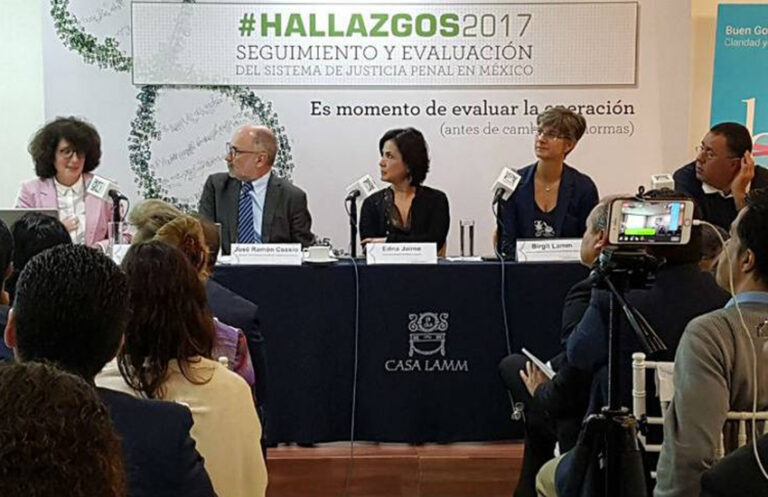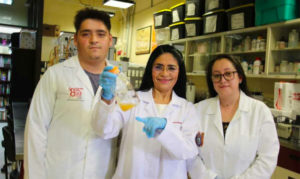Figure more than double entire 2021 budget of Mexico’s Interior Ministry
by Mexico News Daily
President López Obrador has been railing against the United States’ funding of what he says are political groups opposed to his administration, accusing the U.S. government of meddling in Mexico’s internal affairs.
Now, more details have emerged about the quantity of money the U.S. government has sent south of the border since AMLO, as the president is commonly known, took office in late 2018 and who has received it.
The United States Agency for International Development (USAID) and the National Endowment for Democracy (NED) have provided approximately US $29 million to organizations operating in Mexico, according to documents reviewed by the newspaper Milenio.
That figure — made up of the amounts the two agencies sent to Mexico in 2019, 2020 and the first five months of this year — is more than double the entire 2021 budget of Mexico’s Interior Ministry, Milenio said.
The newspaper said that the USAID and NED money goes to projects led by Mexican organizations, projects led by United States organizations that are active in Mexico and to municipal, state and federal governments.
“It’s used to help strengthen civil society organizations, improve public initiatives like the National Anti-Corruption System, protect human rights, combat drug trafficking, look for missing people, eradicate violence against women, promote democratic ideals, support the media and promote the use of renewable energy sources, among other projects,” Milenio said.
Among the organizations that have received funding from USAID since AMLO assumed the presidency are the Mexican Institute of Human Rights and Democracy, the Institute for Security and Democracy, the Mexican Institute for Competitiveness and the National Social Communication Center.
Freedom House, a United States-based NGO that conducts research and advocacy on democracy, political freedom and human rights, is one example of an American organization that has received USAID funding for its work in Mexico.
USAID has also provided funding for a range of government projects. This year, it will provide $90 million in funding to municipal, state and federal governments. That figure is set to increase in 2022.
The NED, an agency founded in 1983 to promote democracy abroad at a time when the United States and the Soviet Union were Cold War foes, has provided funding to Mexicans Against Corruption and Impunity (MCCI), México Evalúa — a public policy think tank — the news website Animal Político and a range of other organizations, Milenio said. It has also provided funding to events such as Mexico City’s International Documentary Film Festival.
The United States’ funding of MCCI, which has exposed corruption in the current and previous federal governments, has particularly roiled AMLO. The federal government sent a diplomatic note to its U.S. counterpart in May to ask it to explain why it has provided funding to the group. The government has also asked the U.S. to stop funding opposition groups, but López Obrador said Monday that there has been no response to that request.
Last August, AMLO accused civil society organizations and Animal Político of using funding they received from the NED and private U.S. foundations to oppose the federal government’s Maya Train project. But the NGOs and the news site rejected the accusation.
López Obrador said Monday that his government would continue asking the United States to stop funding groups such as MCCI and the press freedom organization Article 19, which has also criticized him.
Source: Milenio (sp).
In other non-related news:
Researchers find cancer-fighting agent in pulque, drink of the gods
An acid in the drink can prevent the proliferation of colon cancer cells by up to 40 percent
Pulque, an alcoholic drink from fermented agave, contains a cancer-inhibiting probiotic, researchers have found.
The finding indicates that a lactic-acid-bacteria found in the drink called Lactobacillus brevis prevents the proliferation of colon cancer cells by up to 40 percent.
Mexican and French scientists made the discovery in a joint study of Mexican fermented beverages by the National Polytechnic Institute (IPN) and France’s National Institute for Agricultural Research (INRAE).
Researchers isolated 20 strains of Lactobacillus brevis from pulque sediment to test their ability to block the proliferation of tumorous cells, and found that the strain which is endemic to Nanacamilpa, Tlaxcala, to be most effective.
The two research institutions have obtained a patent for the discovery, and detailed information has been shared with experts in the United States, Canada and the European Union.
Dr. María Elena Sánchez Pardo, an IPN researcher, attested to the value of the acid to fight cancer. “Lactobacillus brevis has an effect similar to that of the drug 5-fluorouracil, without causing any adverse effects on healthy cells … This is a very important scientific achievement that opens the possibility of having an innocuous treatment against colon cancer,” she said.
Tests were also carried out on an animal model of colon cancer, which provided further evidence of the anti-cancerous effect.
Dr. Pardo added that the discovery motivated the research team, and that their work would continue to search for other beneficial properties of fermented Mexican drinks.
Pulque is known as the drink of the gods as it was considered sacred in pre-hispanic Mexico. It is a milk-colored drink with a yeast like taste.
Source: Milenio (sp)




